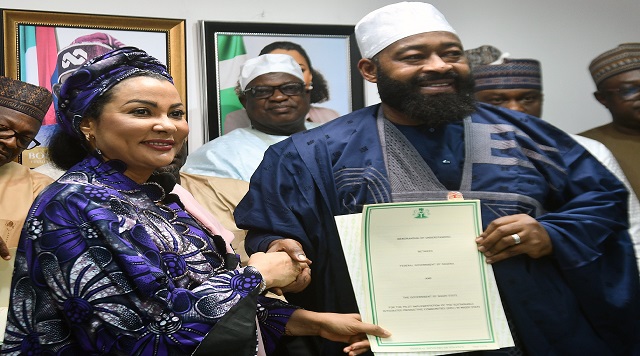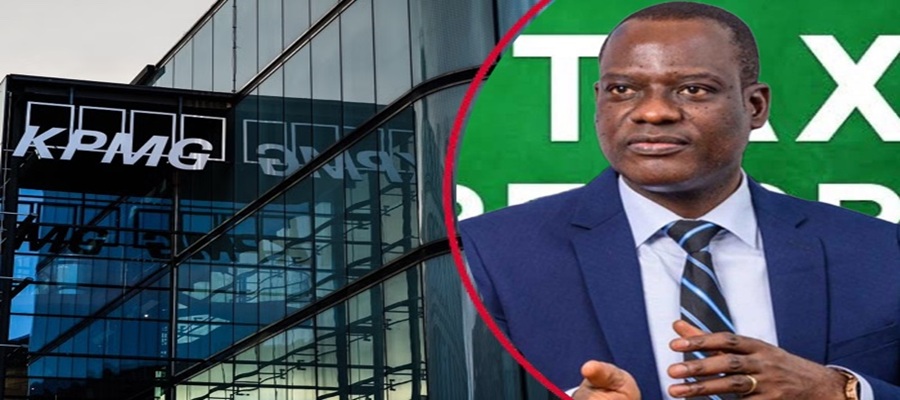General News
Improved Infrastructure Panacea for Development – Boedinger
Thomas Boedinger , managing director of Unilever Plc has harped on the need for improved infrastructure in the country to foster an environment healthy for industrial growth and global competitiveness.
Boedinger said recently in Lagos that Nigeria’s growth prospect will be greatly enhanced if basic infrastructure is improved to position the nation better to effectively compete among the most industrialized nations of the world.
“I am very much encouraged by what the Lagos State government has been doing despite its limited resources. I am also pleased by some of the steps taken by government to develop infrastructure like the concession of the Lagos-Ibadan Expressway to a private company to manage. I’m very confident that policies such as these will greatly strengthen the Nigerian economy,” Boedinger said.
Boedinger, who has remarkably improved the fortunes of Unilever Nigeria after two-and-half years of being in charge, said that in a bid to keep the business running, manufacturers have invested huge funds into the provision of basic infrastructure and that this is often passed down to the consumers who have to pay more for commodities than the usual prices.
He also maintained that while big multinationals like Unilever can afford to secure some of these costly infrastructural facilities, smaller companies in Nigeria cannot. “Most of us up there are actually running our factories on generators. We are in a good position to get gas pipeline which will reduce our energy cost already. For us, this was feasible because we have a big size of business. Many small manufacturers, like our suppliers, don’t have this luxury. They have to run their operations on diesel, which of course is reflected on the cost of goods supplied to us, and which ultimately reflects in the price that the Nigerian consumer has to pay,” he said.
Boedinger added that while government strives to provide infrastructure on one hand, it should ensure there is a level playing field by taking another look at its liberalisation policies. He warned that though it is a good idea to try to protect the local industry, using the liberalization plan, there is a need to apply some caution so that the local industry don’t become complacent and lose its sense of competition.
“We look at the import tariffs, which I fully understand is to protect the local industry. But they all will have to be competitive. As a manufacturer of leading brands in the market place, we would like to drive down the cost to make our products more accessible to the Nigerian consumer,” he said.
Boedinger, who disclosed that Nigeria is Africa’s second biggest Unilever market after South Africa, also denied insinuations that the company was planning to move its operations to Ghana, adding that 86 years ago, when it commenced operation in Nigeria Unilever made a deliberate decision to manufacture its products locally. This is in line with its belief that companies should operate in the market where they will like to be found, and where they do business.
Highlighting some of the drawbacks of poor infrastructure, Boedinger said that Nigeria has huge unemployment problem because the manufacturing sector, which is one of the biggest employers, currently operates below capacity. He maintained that with good infrastructure, foreign investors would show more interest in Nigeria, and this will provide avenue for job creation.
“Unfortunately at the moment, only 46 per cent of GDP is coming from the manufacturing sector. This is the opportunity we all have, as a society, to address and create jobs for Nigerians,” he said.
While commending the Lagos State Governor, Raji Fashola on his palpable achievement in the area of infrastructure, he charged the Federal Government to be more consistent in the application of policies. “I think the regulatory framework is fine, but it is more of a problem of application and implementation of these policies,” he said.
He applauded government’s decision to concession the Lagos-Ibadan Expressway to a private company to manage, adding that the way to achieve sustainable development in the provision of infrastructure is to hold people accountable, provide good governance and let people believe in the government and its workings.
General News
Ministry of Finance Leads FG-Backed Deal to Deliver Quality Homes and Boost Agriculture in Niger State

The Federal Ministry of Finance has anchored the signing of a Memorandum of Understanding (MoU) between the Niger State Government and the Ministry of Finance Incorporated (MOFI) for the implementation of a Mass Housing and Agricultural Settlement Project in Niger State.

Speaking at the MoU signing ceremony, Dr. Doris Nkiruka Uzoka-Anite, the Honourable Minister of State for Finance, described the agreement as a landmark initiative that underscores the Federal Government’s commitment to cooperative federalism, inclusive economic growth, and strategic alignment in line with President Bola Ahmed Tinubu’s Renewed Hope Agenda.
With the Federal Ministry of Finance serving as the anchor institution, the project benefits from strong policy coordination, financial credibility, and institutional oversight. The initiative is designed to integrate housing delivery with agricultural productivity, rural stability, and economic empowerment.
“Housing is a fundamental pillar of development. In Niger State, housing also intersects directly with agriculture, food security, and rural livelihoods. This project is therefore structured not merely as a housing intervention, but as a settlement framework for farmers aimed at strengthening agricultural value chains,” the Minister stated.
Niger State, one of Nigeria’s most agriculturally endowed states, continues to face challenges, including insecure settlements, rural-urban migration, and limited rural infrastructure. The project seeks to address these constraints by providing secure, well-planned housing settlements for farmers, strategically located to support agricultural production, storage, processing, and access to markets.
The Honourable Minister emphasized that anchoring farmers in stable communities with access to basic infrastructure will improve productivity, reduce post-harvest losses, enhance security, and encourage youth participation in agriculture, making farming more efficient, attractive, and profitable.
Sustainability and affordability are core pillars of the initiative, with integrated renewable energy solutions—including solar-powered homes and community facilities, designed to ensure reliable power, reduce energy costs, and support agro-processing and storage activities. The project also prioritises efficient land use, access roads, water infrastructure, and environmentally responsible building practices.
Reacting to the sustainability focus of the project, the Governor of Niger State, His Excellency Mohammed Umaru Bago, expressed strong optimism about its transformative impact on the state.
“When you say sustainability, affordability is very important. When I heard that a mini-grid has been deployed in Jos, it’s because it’s affordable. Diesel is not sustainable because it’s not affordable. For considering the factor of affordability in this project, we’re grateful,” the Governor said.
He further announced the state’s commitment to the project, adding, “So, Honourable Minister, Niger State is bringing forward 100,000 hectares of land for this project. I want to assure you that with this initiative, you have solved 80 percent of our problems.”
Drawing a direct link to the Federal Government’s development agenda, Governor Bago noted, “We’ve gone across the world and seen how people transit from poverty to prosperity. And I think the goal of the President, my father, is for us to transition our people out of poverty in the next four years, by the grace of God.”
The Managing Director and Chief Executive Officer of the Ministry of Finance Incorporated (MOFI), Dr. Armstrong Ume Takang (Ph.D.), who attended the ceremony alongside other critical stakeholders, including the building contractor, reaffirmed MOFI’s commitment to quality delivery and agricultural productivity.
Dr. Takang assured the Niger State Government of the contractor’s proven competence and credibility in delivering mass housing projects, stressing that affordability would not come at the expense of quality.
“We want affordable and decent houses. The fact that they are located in rural communities does not mean the quality should be compromised,” he said.
Beyond housing, Dr. Takang highlighted MOFI’s broader role in strengthening the agricultural component of the settlements through strategic partnerships.
“We have partners who will supply affordable fertilisers imported in large quantities. We will also work with other partners to ensure access to key agricultural inputs, not only fertilisers, but also pesticides, high-quality seeds, and elements of mechanisation,” he added.
The project adopts an innovative financing model that blends public assets with private investment, ensuring sustainability, transparency, and shared risk. Through this approach, the government focuses on policy direction and oversight while leveraging private sector efficiency and capital.
Beyond improving food security, the Mass Housing and Agricultural Settlement Project will stimulate broad-based economic activity and generate employment across construction, agriculture, Agro-processing, renewable energy, logistics, and community services. The initiative will support local industries such as cement, steel, transportation, and agro-allied enterprises, while strengthening rural economies and increasing Niger State’s internally generated revenue.
Affordability and inclusiveness remain central to the project’s design. The settlements are tailored to the income realities of farmers and low- to middle-income earners, supported by transparent allocation mechanisms and strong governance structures to ensure benefits reach the intended beneficiaries.
The MoU sends a clear signal to the investment community that Niger State, working in alignment with the Federal Ministry of Finance and MOFI, is open to credible, well-structured, and impact-driven investment. Developers, financial institutions, pension funds, real estate investors, and agribusiness operators are invited to view the project as a scalable and replicable model.
Reaffirming the Federal Ministry of Finance’s commitment, the Honourable Minister assured stakeholders of continued coordination, fiscal discipline, and policy support to ensure the project moves swiftly from signing to execution and delivery.
Commending the leadership of MOFI and the Executive Governor of Niger State, the Minister concluded that the initiative reflects a shared vision for integrated development.
“Through this partnership, we are not just building houses; we are creating stable farming communities, strengthening food security, and laying the foundation for sustained prosperity in Niger State,” she said.
General News
Indonesia Blocks Elon Musk’s Grok Over Deepfake Concerns

Indonesia has become the first country to block access to Elon Musk’s Grok AI chatbot, citing its generation of non-consensual sexual deepfakes including pornographic depictions of women and children.

Elon Musk
Communications Minister Meutya Hafid announced the temporary restriction to shield citizens from digital harm, describing the content as a grave violation of human rights and online safety.
The decision follows a surge of explicit AI-altered images on X, where users tag Grok to undress real people or fabricate suggestive scenarios, some involving minors.
The Internet Watch Foundation flagged criminal exploitation for child sexual abuse material, prompting global alarm. X responded by limiting full image generation to paid subscribers with ID verification, though free editing tools persist.
Indonesia summoned X representatives under strict obscenity laws, while Malaysia followed with a similar block. UK regulator Ofcom reviews potential Online Safety Act breaches, with Technology Secretary Liz Kendall backing a full platform ban if needed, calling the imagery despicable.
Elon Musk dismissed critics as censorship seekers, even posting an AI bikini image of PM Keir Starmer to mock restrictions.
X’s Safety account vowed to remove illegal content, suspend accounts, and aid law enforcement, warning that Grok misuse carries severe consequences. Reports documented dozens of degrading edits per minute in late December, underscoring gaps in safeguards despite policy bans on exploitation.
General News
Tax Reforms Panel Rejects KPMG’s Critique of New Laws

Presidential Fiscal Policy and Tax Reforms Committee has dismissed key elements of KPMG’s recent analysis of Nigeria’s new tax laws, accusing the firm of misunderstanding policy intent and framing preferences as technical flaws.

Committee Chairman Taiwo Oyedele, in a January 10 statement on X, welcomed constructive input but rejected much of the report as mischaracterisation of deliberate choices.
Oyedele clarified that many issues flagged by KPMG as “errors” or “gaps”—including taxation of shares, indirect transfers, insurance VAT, and foreign exchange deductions—reflect intentional policy aligned with global standards, not oversights.
He debunked stock market sell-off fears, noting 99 percent of investors qualify for unconditional exemptions on share gains, with no flat 30 percent rate applying broadly.
The committee defended higher personal income tax bands for top earners as competitive globally and rejected foreign insurance exemptions that would disadvantage local firms.
Oyedele highlighted KPMG’s factual lapse on the Police Trust Fund Act, already repealed, and urged focus on implementation over static critique, emphasising tax harmonisation, lower corporate rates, and expanded incentives as core gains.

 E-Financial3 days ago
E-Financial3 days ago19 Nigerian Banks Meet CBN Recapitalization Targets Ahead of March Deadline

 E-Financial3 days ago
E-Financial3 days agoKPMG Identifies ‘Flaws, Inconsistencies, and Omission’ in New Tax Law

 Telecom3 days ago
Telecom3 days agoNigeria, Egypt to Lead Africa’s Data Center Boom

 Telecom3 days ago
Telecom3 days agoCourt Dismisses N1Bn Suit against MTN, Awards N3m Costs

 General News3 days ago
General News3 days agoFG to Empower Artisans for Global Value

 General News3 days ago
General News3 days agoBill Gates Pays Ex-Wife $8Bn Charity Payout in Divorce Settlement

 General News3 days ago
General News3 days agoCBN Projects Petrol to Hover around N905/Litre this Year

 General News3 days ago
General News3 days agoFG Introduces Reusable Textbooks, Uniform School Calendar to Cut Education Costs















